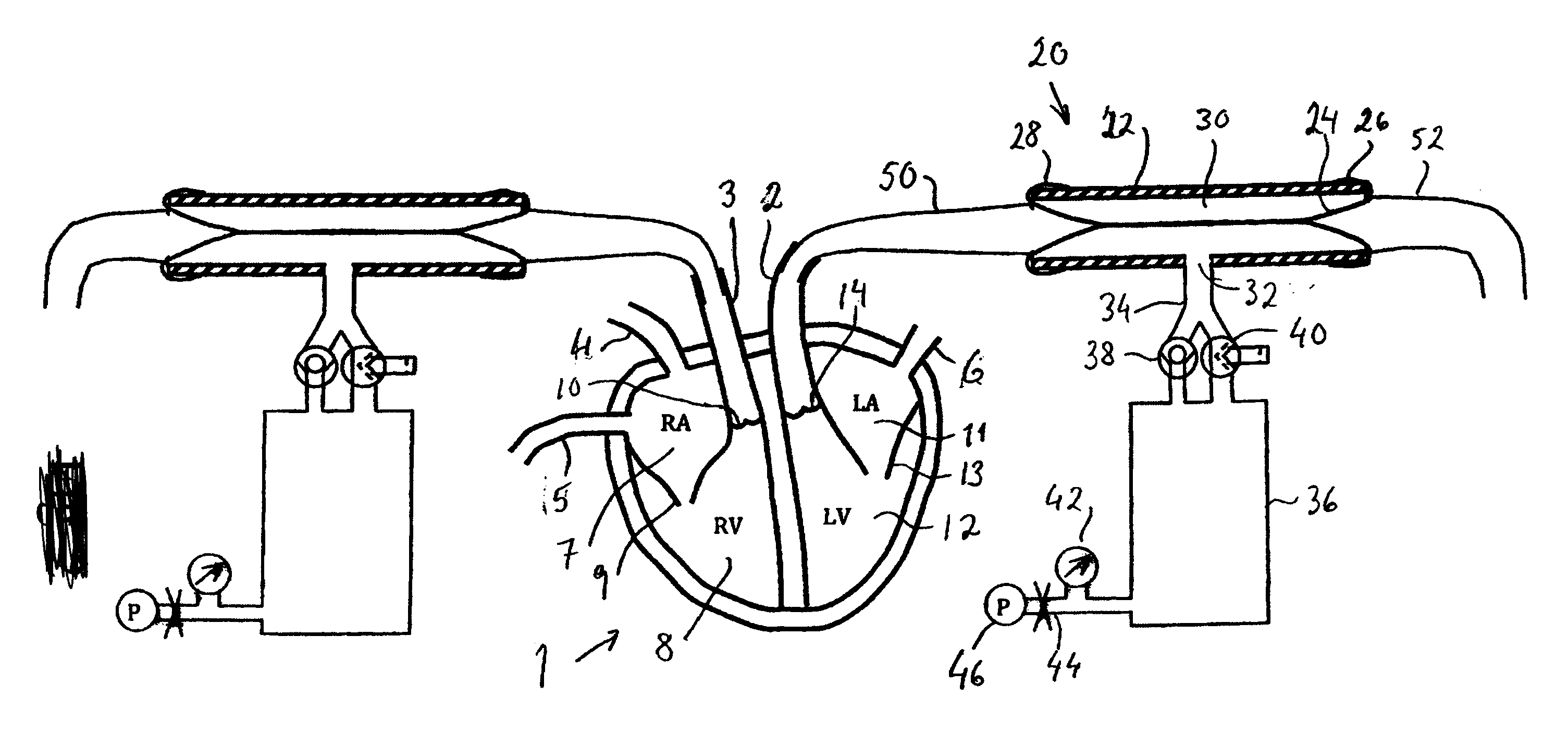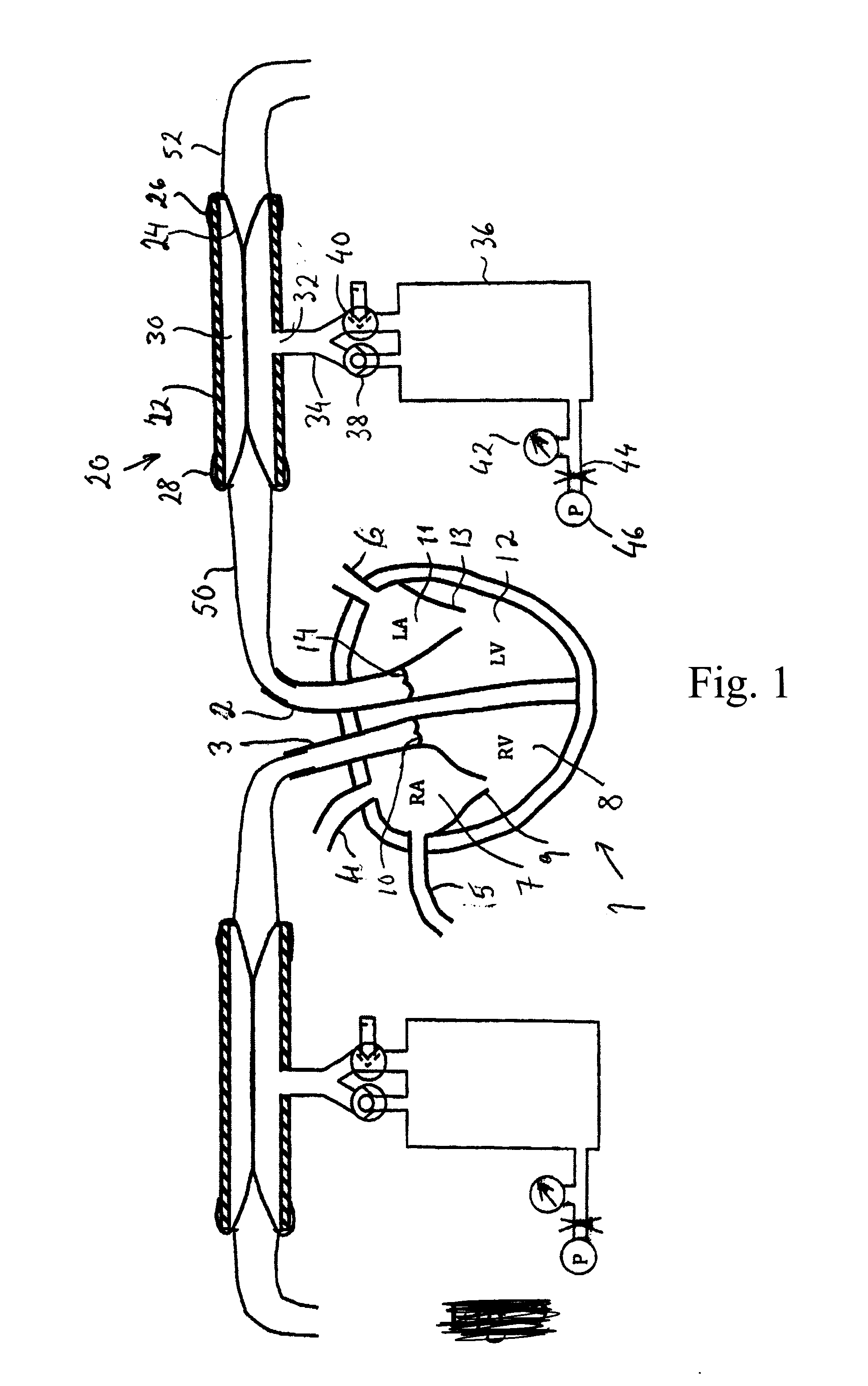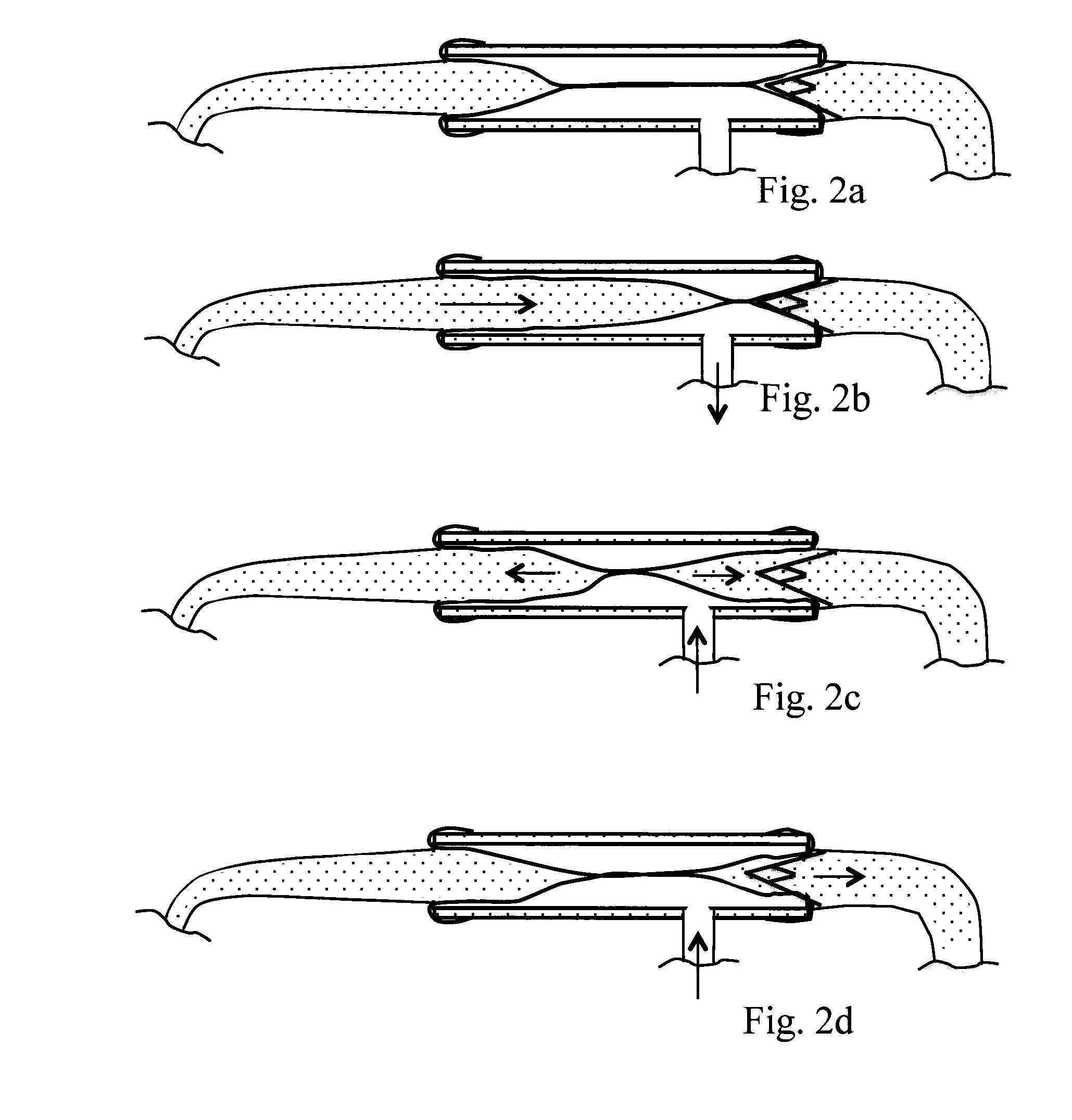An afterload device for a beating heart during examination thereof
a heart and afterload technology, applied in the field of organ examination, can solve the problems of not allowing the heart to produce a normal diastole and no proper heart function, and achieve the effect of reducing, alleviating or eliminating one or more of the above-identified deficiencies and disadvantages
- Summary
- Abstract
- Description
- Claims
- Application Information
AI Technical Summary
Benefits of technology
Problems solved by technology
Method used
Image
Examples
Embodiment Construction
[0032]Below, several embodiments of the invention will be described. These embodiments are described in illustrating purpose in order to enable a skilled person to carry out the invention and to disclose the best mode. However, such embodiments do not limit the scope of the invention. Moreover, certain combinations of features are shown and discussed. However, other combinations of the different features are possible within the scope of the invention.
[0033]In a devices known from U.S. Pat. No. 7,045,279, it is common to connect the aorta of the heart to an afterload container via a tube. The afterload container is maintained at a height above the heart to provide a diastolic pressure of for example about 70 mmHg. The diameter of the tube should be in the same order of size as the aorta, for example about 25 mm. Thus, the volume of fluid in the tube may be almost 0.5 liters. When the heart contracts at the start of the systole, the left ventricle first contracts in an isovolumetric v...
PUM
 Login to view more
Login to view more Abstract
Description
Claims
Application Information
 Login to view more
Login to view more - R&D Engineer
- R&D Manager
- IP Professional
- Industry Leading Data Capabilities
- Powerful AI technology
- Patent DNA Extraction
Browse by: Latest US Patents, China's latest patents, Technical Efficacy Thesaurus, Application Domain, Technology Topic.
© 2024 PatSnap. All rights reserved.Legal|Privacy policy|Modern Slavery Act Transparency Statement|Sitemap



